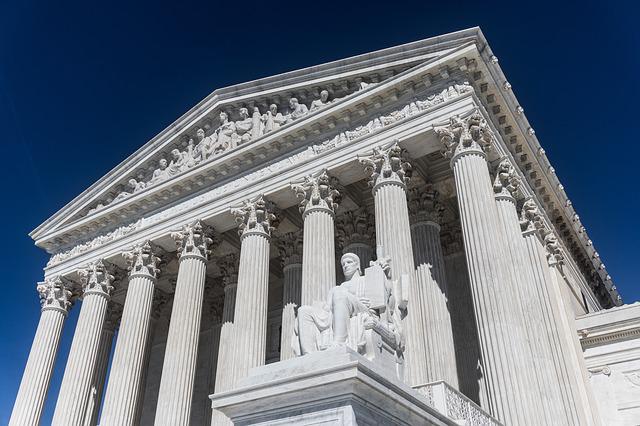Reversing Roe v. Wade Would Be More Popular than You Think

I grew up in a Catholic, pro-life household. In an earlier time and place, when Catholics led the union movement, our family might have been pro-union. By the 1970s in the San Francisco Bay Area, support for unionization was no longer the galvanizing issue for observant Catholics. Support for the unborn was. Roe v. Wade and its companion case, Doe v. Bolton, were decided in 1973, and the rulings were dramatically at odds with our values.
More than religion informed my opinions, though. My Mom had a side job as a Lamaze instructor. In those days at least, instructors showed large, professionally done drawings of the developing embryo and fetus to pregnant couples. My Mom kept the images in a closet and being curious I saw them. While I thought the images were more creepy than beautiful, I had to affirm the humanity of the unborn child.
To deny this would be to deny reality itself. Wanted or unwanted, the child was a human being. I never heard or read anyone calling openly for the death of homeless people in San Francisco because they were unwanted.
We can transcend our tribe
We all have biases and tribal affiliations. Do we acknowledge them or not? In a representative democracy like ours, to deny our prejudices is to court disaster. Nearly 200 years ago, Tocqueville identified individualism as a pre-eminent threat to democracy:
Individualism is a novel expression, to which a novel idea has given birth. Our fathers were only acquainted with egoisme (selfishness). Selfishness is a passionate and exaggerated love of self, which leads a man to connect everything with himself and to prefer himself to everything in the world. Individualism is a mature and calm feeling, which disposes each member of the community to sever himself from the mass of his fellows and to draw apart with his family and his friends, so that after he has thus formed a little circle of his own, he willingly leaves society at large to itself.
Selfishness originates in blind instinct; individualism proceeds from erroneous judgment more than from depraved feelings; it originates as much in deficiencies of mind as in perversity of heart.
Selfishness blights the germ of all virtue; individualism, at first, only saps the virtues of public life; but in the long run it attacks and destroys all others and is at length absorbed in downright selfishness. Selfishness is a vice as old as the world, which does not belong to one form of society more than to another; individualism is of democratic origin, and it threatens to spread in the same ratio as the equality of condition.
Tocqueville was right. Individualism, properly understood, is a danger. Shudder the thought if most political disagreements were carried out like flame wars on Facebook or Twitter, let alone when pro-Trump supporters stormed the U.S. Capitol on January 6 or the revolutionary left’s low-grade civil war against the Establishment in the 1970s.
Here’s one lesson I have learned as a reporter. Looking at polls can be a useful corrective to our biases, a method of shattering our rose-colored glasses. They show us un-blinkered reality. To be sure, using polls alone to inform your outlook is political hackery. Yet ignoring them altogether is cultish. The Church of Scientology is not known for taking or looking at polls, for example.
A smart way to challenge your political biases
Many poll results should disconcert pro-lifers. Three-fifths of Americans approve of Planned Parenthood, the non-profit that ends more unborn lives than any other in the United States. Nearly three-fifths say they oppose laws that ban abortion after a fetal heartbeat is detected, typically after six weeks. Three-fifths say they support abortion in the first three months of a woman’s pregnancy. Those are strong majorities, not bare majorities.
While pro-lifers may dislike these results, they must respect them politically. The alternative is worse: to fight a never-ending series of battles, like Sisyphus rolling the ball up the hill only to have roll down or Harold Stassen and Lyndon LaRouche running for president.
A surprising poll result about Roe v. Wade
Pro-lifers are not the only ones subject to bias and tribal affiliations. Social liberals are subject to them as well. Some of them are—yes, I know it’s a shocker—are reporters and editors. They may be familiar with evidence the country is not as pro-choice as they—e.g. most Americans support abortion restrictions, such as 24-hour waiting periods and informed consent laws for minority, and abortion bans in the second- and third trimesters.
Yet social liberals hear a more inconvenient truth only rarely … Do you want to hear it? …. Read closely here. Are you ready? … I’ll tell you now:
Most Americans oppose the vast majority of abortions that are performed in the United States.
I say “rarely” for a reason. To reach the conclusion above, you must do more than read a poll. You must look at the reasons women give as to why they abort.
Why women say they abort
Consider the Guttmacher Institute, a pro-choice non-profit research group. As the organization wrote in 2016,
(t)he reasons women give for having an abortion underscore their understanding of the economic impact unplanned childbearing would have on themselves and their families. Most abortion patients say that they cannot afford a child or another child, and most say that having a baby would interfere with their work, school or ability to care for their other children.9 Most women also cite concern for or responsibility to other individuals as a factor in their decision to have an abortion.
The Guttmacher report was based on a study it released in 2005. Twice, Guttmacher asked women the “specified reasons that contributed to their decision to have an abortion.” Each time, an overwhelming majority said they “cannot afford a baby now.” In 2004, 73 said so, while 69 percent said so in 1987.
Most Americans oppose abortion for economic reasons
It’s one thing for Americans to sympathize with these women. It’s another thing for Americans to support them. If the polls are any sign, most don’t.
Twice, Gallup has asked respondents their opinion on abortion “when the woman does not want the child for any reason” in the first three months of pregnancy (emphasis mine). Each time, a sizable majority said abortion should be illegal. In 2003, 53 percent expressed support for prohibiting abortion, while 45 percent said abortion should be legal. In 2003, the numbers were more lopsided in favor of the pro-life side: 56 percent said abortion should be illegal, while 41 percent said it should be legal.
Four times, Gallup has asked the public their view on abortion “when the woman or family cannot afford to raise the child.” Four times, more than 60 percent said abortion should be illegal, while no more than 36 percent said abortion should be legal. (It’s worth noting Gallup has not asked this since 2011).
The lessons neither side likes to admit
From the poll results and statistics, I think we can draw two lessons.
The first lesson is American opinion about abortion is ambivalent. Detailed poll questions bolster the pro-life side. Vague ones, such as “Do you support overturning or upholding Roe v. Wade”, favor pro-choicers. (Most Americans know little about abortion laws in their state or the country).
The second lesson may disturb social liberals. Overturning Roe and its 1992 successor case, Casey v. Planned Parenthood, are more than a right-wing opinion. Some independents and Democrats, too, would support sending abortion back to the states.
Honest and fair-minded writers and reporters should admit as much.
What does everybody think?
– 30-

0 Comments